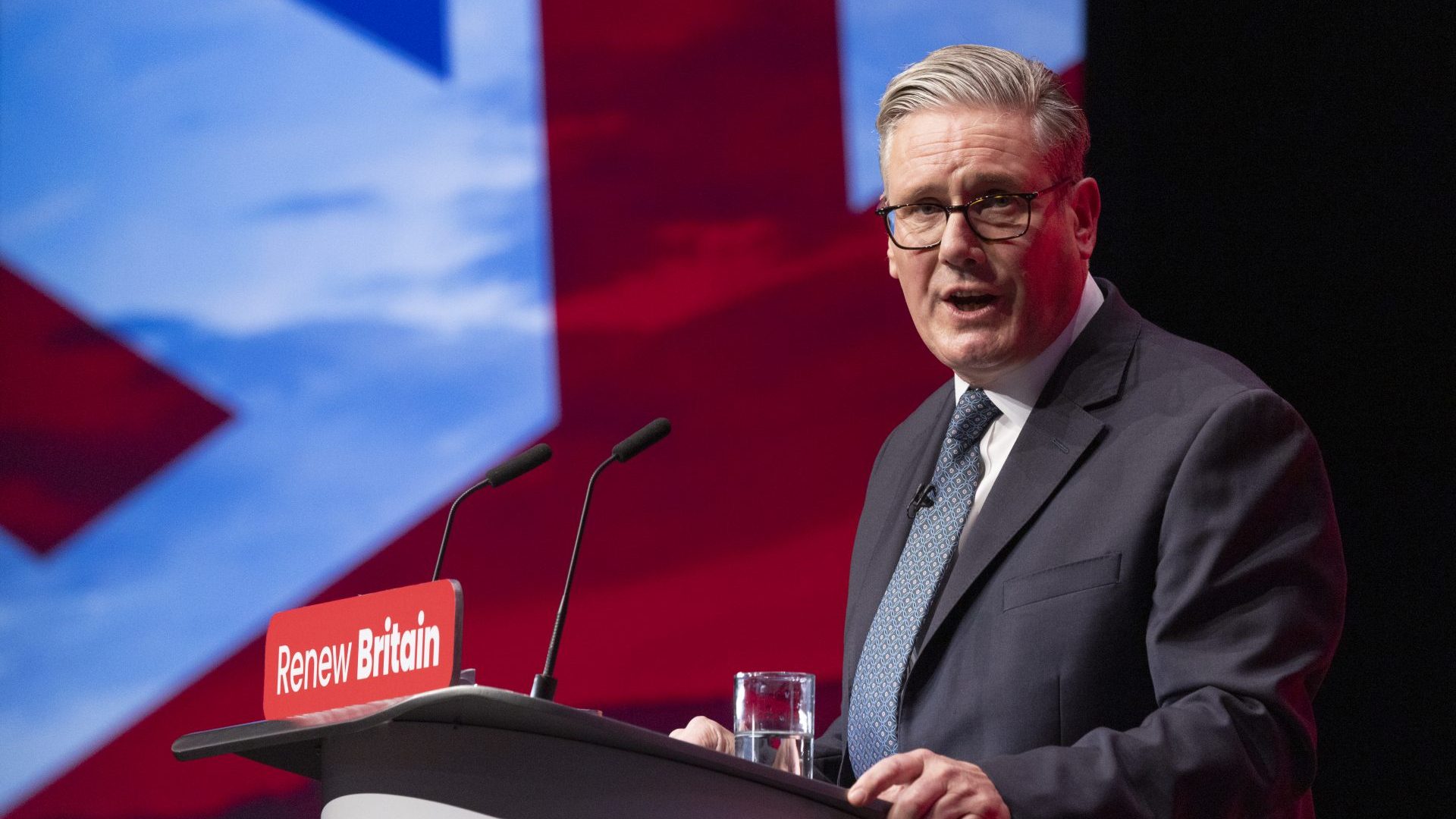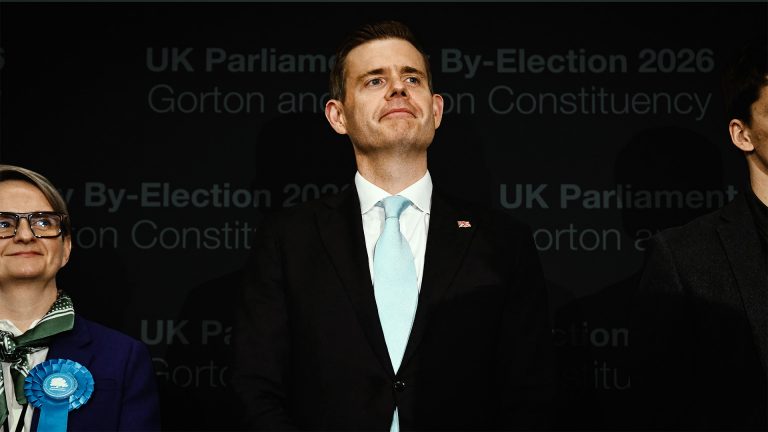Throughout Labour’s party conference, you could scarcely get more than two minutes into a conversation with anyone – whether junior minister, MP, or ‘just’ a party member – without the word “narrative” creeping into the conversation.
“We need to find a narrative” or “we need to change the narrative” was the relentless refrain – Labour’s faithful is well aware that the government is losing on that front. Against that backdrop, there are two stories that could be told about Keir Starmer’s speech on Tuesday afternoon.
The first version goes like this: if Labour needed a narrative, this speech didn’t offer much of one. Starmer spoke for around 55 minutes, and the majority of the speech had the verve and pace of a laundry list. Even the assembled conference audience, largely willing the prime minister to succeed, could muster up little more than polite applause.
There was little in the way of big swings, no new policy direction, no big theme. Starmer, unusually for a successful barrister, is not a natural public speaker and his delivery remained largely flat. The theme and slogan the speech tried to deliver – “A Britain built for all” – is so blandly meaningless as to be instantly forgettable. Once again, when everyone is calling for a big change, Starmer delivered more of the same.
No. 10 will be hoping that narrative isn’t the one that sticks – because there is a genuine case for a second. By far by the best section of the speech was when the prime minister took on Reform and Nigel Farage directly. Often, when Starmer tries to deploy anger in his political speeches, he comes across as peevish or irritable. On Tuesday, he sounded righteously furious.
Echoing his words last week, Starmer was once again unafraid to use the word “racism” and to call it out in clear terms – though once against differentiating between the racism of some of Reform’s policies, and some of its adherents, versus the wider body of voters considering the party.
Starmer finally managed to clearly differentiate the difference between pride in the national flags as symbols for everyone in Britain from their use to harass and intimidate ethnic minorities. And as he built to a crescendo on this theme, the room was delighted to hear it.
“If you say or imply that people cannot be English or British because of the colour of their skin,” Starmer said to building claps and cheers, going on to talk about doctors and other workers who had been promised a life in Britain “…if you say they should now be deported, then mark my words: we will fight you will everything we have.”
People can and will say that this is the sort of rhetoric we should have heard from No. 10 much sooner – but late is far better than never, and Starmer sounded convinced and convincing on actually fighting Reform on principle and with conviction. This was a much better performance from Starmer than anything we have seen for months.
On balance, both of these stories can be true, at least to an extent. This speech is not going to change Starmer’s personal fortunes nor those of the government. It isn’t enough to either change or establish a narrative, and the weaknesses of his operation shine through in the speech’s flaws.
Suggested Reading


The ID cards disaster is another sign that Starmer has lost it
This is a deeply unpopular government facing an insurgent far right without much of a plan as to how to fight that battle in the long-term. That was true last week and remains true this week.
But the short-term matters too, and the mood in Liverpool felt brighter on Tuesday than it did on Sunday. The threat of a challenge from Andy Burnham has receded, at least for the moment, and No. 10 can at least feel assured there are no obvious challengers for the leadership in the near future.
Conference has passed without any major gaffes or disasters, and while the leader’s speech is unlikely to be much noticed by the nation at large, it delivered in the room – and it showed Starmer and his team are at least showing some willingness to take the fight to Reform.
Political battles are fought and won day by day and inch by inch – a lesson Starmer learned while in opposition, when Boris Johnson’s government were 20 points ahead in the polls and victory looked impossible. They have turned around seemingly impossible political situations before.
Maybe, just maybe, they might be able to claw their way back again.












